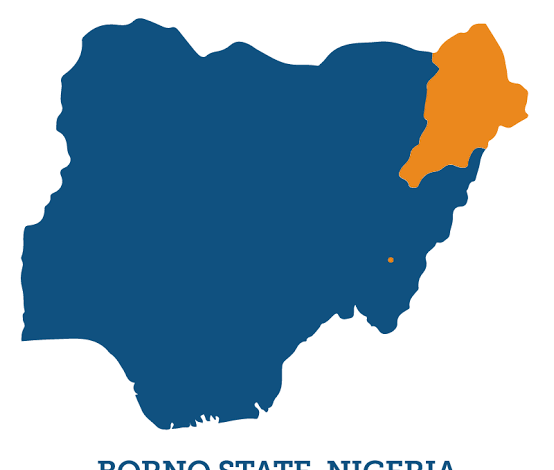EU, UN Provide Mental Health Services For Over 5000 Children In Borno
The ongoing terrorism in Northeast Nigeria has taken the lives of over 300,000 children and traumatising several others.

The United Nations Children Fund (UNICEF) and the European Union (EU) have today said they are providing community-based psychosocial services aimed at improving Mental Health in 5,129 children in Borno state.
In a press statement released today by UNICEF, the two organisations lamented that “children continue to bear the brunt of the 12-year conflict in Northeast Nigeria.”
According to UNICEF, at least 300,000 children have been killed in the ongoing conflict ravaging most parts of the northeast subregion.
More than three million persons have so far been displaced in the crisis around the Lake Chad Basin. And most of the affected persons are women and children.
As a result of the displacement, and the attendant violence they have witnessed, many of them were found to be suffering the impacts of “pervasive psychosocial distress manifesting as high levels of anxiety, suspiciousness, anger, aggressiveness, and hyper-vigilance.”
A condition that makes it difficult to easily mingle socially or enrol in schools.
UNICEF said with funding support from the EU, it has been able to provide mental health support for “5,129 conflict-affected out-of-school children in Borno State, Northeast Nigeria through its Early Recovery and Resilience Project.”
The foremost UN relief agency said the children who were drawn from six local government areas are currently “receiving services including mental health support in safe spaces to strengthen their well-being, resilience, literacy skills and self-reliance.”
Support has also been provided for vulnerable children across Borno with protection and health services, vocational and basic literacy skills, access to justice and security, under a holistic humanitarian intervention that has so far provided 15,552 out-of-school children with vocational training, 1,610 out-of-school children with literacy and numeracy skills and 5,194 children enrolled into integrated Qur’anic schools across focus LGAs.
UNICEF said more than 300,000 children have been killed in Nigeria’s northeast, while over one million have been displaced. “The scars of conflict are real and enduring for children,” said Peter Hawkins, UNICEF’s Representative in Nigeria.
“Too many children in Northeast Nigeria are falling victim to a conflict they did not start. Attacks against children must stop immediately. In the meantime, we are committed to working with our partners to provide psychosocial and other support to conflict-affected children so they can regain their childhood and restart their lives.’’
Experts said stress and violence have been associated “to poor brain development, depression and poor self-esteem, and children exposed to conflict and violence are at risk of long-term mental health and psychosocial issues.”
EU’s Head of Cooperation, Cecile Tassin-Pelzer, said: “Addressing the psychosocial well-being and development of children and teachers in conflict situations is an important part of re-establishing education provision and enabling children to re-enter schools safely.”
UNICEF uses psychosocial support to help conflict-affected children manage their emotions, solve problems, deal with crises, and maintain healthy relationships.
UNICEF said the EU-funded programme in Borno State is a component of a three-year €10 million EU Support to Early Recovery and Resilience package to support children, youths, and communities in Borno State.
Support Our Journalism
There are millions of ordinary people affected by conflict in Africa whose stories are missing in the mainstream media. HumAngle is determined to tell those challenging and under-reported stories, hoping that the people impacted by these conflicts will find the safety and security they deserve.
To ensure that we continue to provide public service coverage, we have a small favour to ask you. We want you to be part of our journalistic endeavour by contributing a token to us.
Your donation will further promote a robust, free, and independent media.
Donate HereStay Closer To The Stories That Matter




